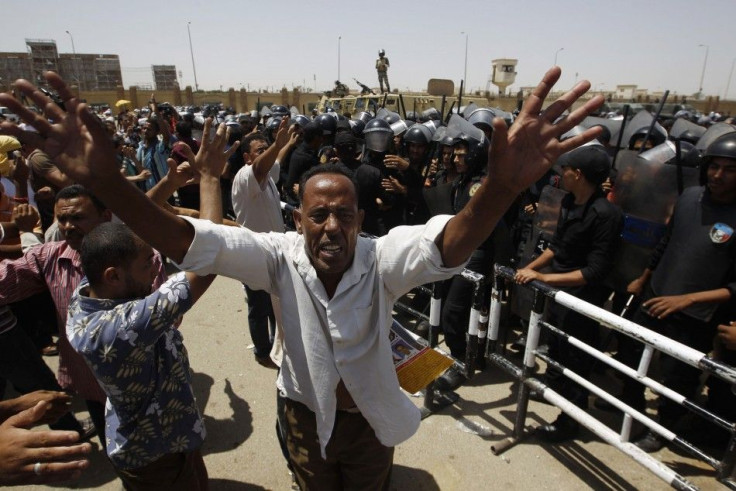What Egypt?s Soft Coup Means For The Presidential Elections

This Saturday and Sunday, Egyptians will head for polling stations to choose who will be their first democratically elected president. The run-off vote pits the Muslim Brotherhood against the old regime, and last week the chief concern among the nations' electorate was reining in control of the Islamists, which dominated parliament and most aspects of the new, post-Hosni Mubarak state.
But on Thursday, things got more complicated. In what is widely being considered a soft coup, the High Constitutional Court dissolved the lower house of parliament, thereby voiding the recently reformed constitutional draft committee. When the new president is elected, the constitutional limits of his power won't be defined until a new parliament can be elected in do-over elections.
We are going to elect a president in the next couple of days without a constitution and without a parliament, Mohamed ElBaradei, a Nobel Prize laureate who ran in the first round of elections, told the Guardian. He will be a new emperor, holding both legislative and executive authority and with the right to enact laws and even amend the constitution as he sees fit.
Thursday's court ruling also secures Ahmed Shafiq's place in the run-off vote. Because of his association with the old regime -- Shafiq was the head of the air force under Mubarak, as well as the last person to serve as prime minister -- Shafiq's eligibility was blocked until the law against Mubarak-era officials was overturned. The ruling has put the success of last year's revolution in jeopardy, and already protestors have returned to Tahrir Square to save Egypt from military rule, while others are calling for an outright boycott of the elections.
We are now facing a heinous coup shamelessly aborting the revolution, the Muslim Brotherhood said in a statement. It is clear that this coup is the last card of counter-revolutionary players. But the people who bravely revolted on January 25 [2011] until they toppled Mubarak on February 11 ... will never allow anyone to hijack their revolution or bring back the dark era of injustice and oppression, tyranny and backwardness.
Currently, Muslim Brotherhood's presidential candidate, Mohamed Mursi, is leading Shafiq in the polls by a significant margin. But Egypt is no stranger to vote-rigging -- and the military, which is running the show, has already stepped up a campaign to stop dissenting voices, issuing emergency rules on Friday that give military police the ability to arrest and investigate civilians for almost anything they please.
The second round [of presidential voting] is illegitimate and will be rigged, just as the first round was rigged, in order to ensure that Shafiq takes the presidency, Egyptian writer Alaa Al Aswany, who has clashed with Shafiq in the past, said on Friday. If Egyptians object to the fraud after Shafiq takes office, they will be violently suppressed.
While some figures -- including an unnamed Brotherhood member who told Ahram that deep down, nobody is expecting Mursi to win -- are resigned to the idea that Shafiq will win easily thanks to help from his friends in the ruling Supreme Council of the Armed Forces, or SCAF, nothing is set in stone in modern Egypt, and the SCAF could suddenly decide to reinstate parliament or step down from power at the drop of a fez.
Nonetheless, with the SCAF solidifying its power, at least in the short term, it will play a major role in deciding how much power and influence the next president will have, regardless of who wins. Al Arabiya speculated on Friday that if Mursi takes the popular vote, the SCAF will limit the scope of presidential powers, while a Shafiq victory would do the opposite, giving the military-backed candidate broad and uncompromising control of the country. While that may be outrageous for the revolutionaries, it would, as Shafiq has promised to do, put a relative end to the chaos that has consumed Egypt for 18 months.
Boycott aside, less than 50 percent of eligible voters turned out in the first round of the presidential elections, so with controversy and anger swirling, the prospect of even lower voter participation is a daunting hurdle for both candidates.
We fully believe that the Egyptian people, who waited for this moment for long decades, will back the revolutionary candidate to achieve success for the revolution and exact retribution for its martyrs, the Muslim Brotherhood stated on Friday, less than 24 hours before the Egyptian people will pick their future leader.
© Copyright IBTimes 2024. All rights reserved.





















